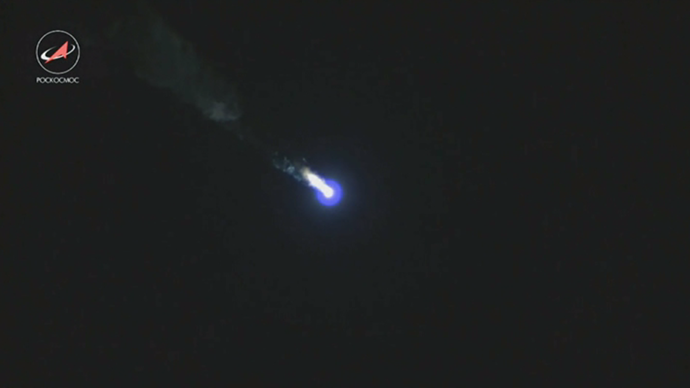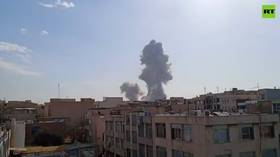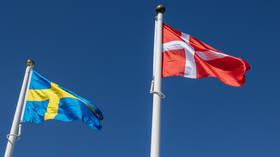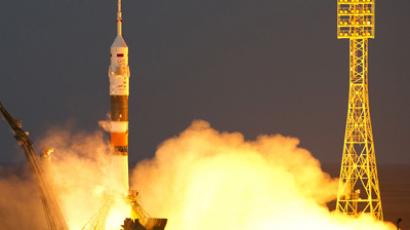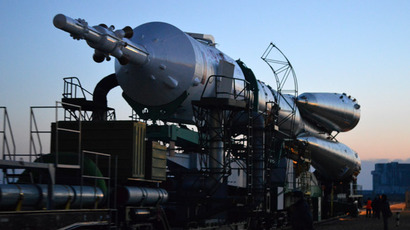Proton-M rocket carrying Russia's most advanced satellite crashes
A Russian Proton-M rocket with an advanced satellite on board crashed outside of Kazakhstan's territory on Friday, about nine minutes after lift-off. The Express-AM4R would have been Russia’s most advanced and powerful satellite.
The crash was likely caused by a failure in one of the third stage’s steering engines, reported Oleg Ostapenko, the head of the Russian national space agency Roscosmos.
“The exact cause is hard to establish immediately, we will be studying the telemetry. Preliminary information points to an emergency pressure drop in a steering engine of the third stage of the rocket,” he said.
Fragments of the rocket and its cargo have apparently burned in the atmosphere, he added, which means they could not cause any damage on the ground.
The launch went abnormal on the 540th second of the flight, when an emergency engines shutdown kicked in in response to the rocket deviating from its intended trajectory, the Russian Federal Space Agency reported after the crash. The third stage, which is called Briz-M, was approximately 150km above the ground at that moment and had some 40 seconds to go before deploying its payload into the orbit.
Commenting on the failed launch, Vice Prime Minister Dmitry Rogozin said “the only way to cut down the accident rate is to coherently implement the decision we have taken on the reform of the space industry.”
All other launches of Proton-type rockets will be halted at Baikonur space center in Kazakhstan until the reason for the crash is determined.
A special commission from the Russian Federal Space Agency will be in charge of investigating the causes of the crash. A separate internal probe has been launched by the Voronezh mechanic plant, the producer of the engines for Briz-M third stages.
The launch, including the equipment and possible damage to third parties, had been insured with Ingosstrakh, the company said in a statement. The coverage may amount to up to $225 billion.
The Proton-M rocket, carrying an advanced Express-AM4R satellite, was launched on schedule from Baikonur on Friday. The Express-AM4R would have been Russia’s most advanced and powerful satellite. Ironically, it was of the same design as the Express-AM4, which was lost in August 2011 in a failed launch.
“The spacecraft was ensured. But the time spent to produce it cannot be reimbursed,” lamented the head of the Russian Telecommunications Agency Oleg Dukhovnitsky. “The satellite was ready to work; it’s the rocket that failed.”
He added that the loss would not result in deterioration of service quality.
The spacecraft weighed 5.8 metric tons and had 63 transponders providing X-band, C-band, S-band, L-band, Ku-band, and Ka-band capacity along with 10 antennas installed.
The satellite was to provide internet access in Russia’s remote regions at affordable prices. This was Russia's third launch of Express series satellites this year. In March, Express-AT1 and Express-AT satellites were put into orbit.
In 2013, Russia carried out 32 of the 82 space launches completed worldwide, only one of which failed, Interfax reported.
